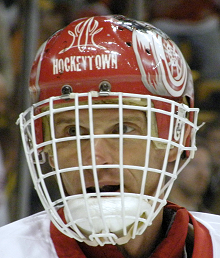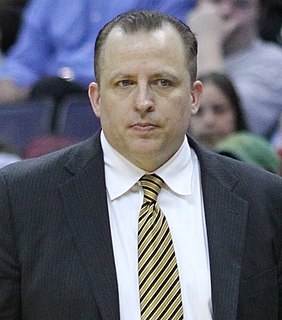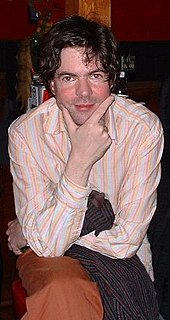A Quote by Erik Spoelstra
We don't teach player development in that way, to be able to try to trick the officials or make sounds or jerk your head back.
Related Quotes
It's been kind of hard, I'm labeled as a jerk right now, you know what I mean? But I love it. I've been a jerk all my life. My momma loves this jerk. My kids love this jerk. I'm going to be a jerk in a good way, though. I'm going to be a jerk to the other teams and just go out there and play basketball. I can do that.
Every manager has different opinions and all you can do as a player is try to fight and get your spot back, or at least earn your manager's trust back to try and get your spot back. There's no use sulking about it, you just get on with it and try to raise your game to get back to the level you need to be when you were starting.
I am not afraid to stop the puck with my head. I try to do it sometimes even in practice; not everyday but once in a while, I say to my teammates, shoot me in my head and I'll try to stop the puck. I am not afraid at all of the puck, so sometimes, if the shot comes at my head, it's an easier save to make with your head. Maybe the people think a different way, but for me, I do it with my head.
The only thing you really have to practice is your ability. And this is something I do all the time. I try to teach my hand to do what I'm hearing in my head at any given second. I don't sit around and practice scales. I sit around and just try to make sure my hands are following what's coming to me.
You cannot teach somebody to write a masterpiece, but you can certainly teach them how to improve their writing skills. And you can teach them that they can make their own voices more effective by being able to communicate more clearly and forcefully. It makes people feel more capable when they can write - for instance to make a request - of a politician - and when they are able to receive a reply.
The secret to writing sound effects is having a room you can be alone in, trying to make the sounds yourself, and seeing what comes out. It's similar to if you're writing a character talking with their mouth full: the only way I know to transcribe that is to stuff my fist in my mouth and write down what sounds I make when I try to talk.





































